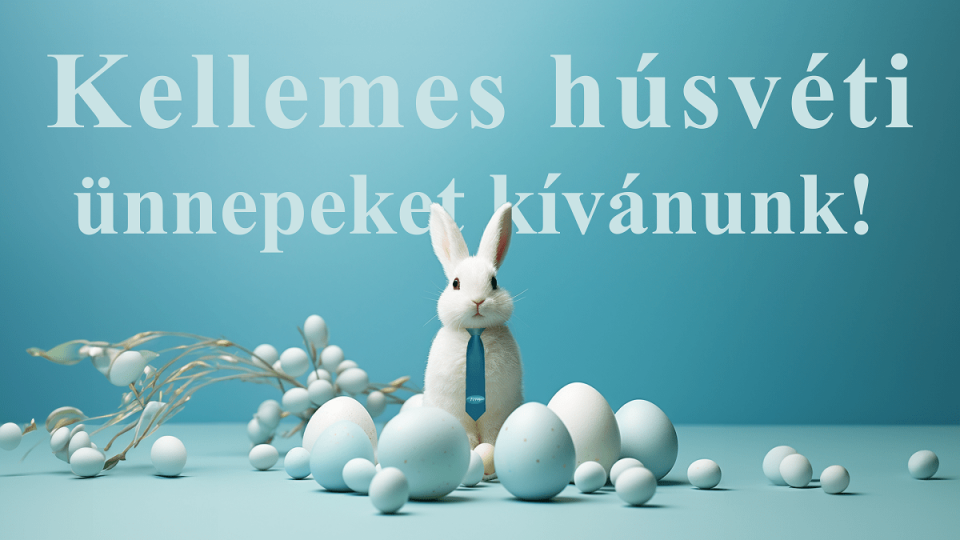
Circular Thinking
Plastics essential elements of our everyday lives
Plastics are the resources of the 21st century and can be processed effectively across industries in very different and flexible manners and at the same time they can be re-used in a resource-saving way. Plastics provide benefits for health, sustainability and convenience. They contribute to ensuring and improving the standard of living, hygiene and nutrition. For quite some time now plastics and plastic packages have been in the public focus. Insufficient or missing waste collection systems in major regions of the world have caused marine and environmental littering. From our point of view it is wrong to meet these challenges in a biased way by prohibition and highly emotional campaigns. The development and expansion of circular recycling systems and a resource-saving use of plastic materials are suitable approaches. This includes the development and implementation of technical solutions. We are a system supplier of machines and tools for thermoforming and have been realizing these solutions for years. In terms of ecological considerations it is not always the best choice to turn away from plastics and towards supposedly better alternatives - frequently, this is only used as alibi. By creating this page we want to contribute to a de-emotionalization of the issue. And we also want to offer new approaches for responsible plastic handling.
Share of plastics of the total mineral oil and natural gas consumption in Western Europe and Germany
Only approx. 1.8 % of the mineral oil and natural gas consumption can be attributed to packages.
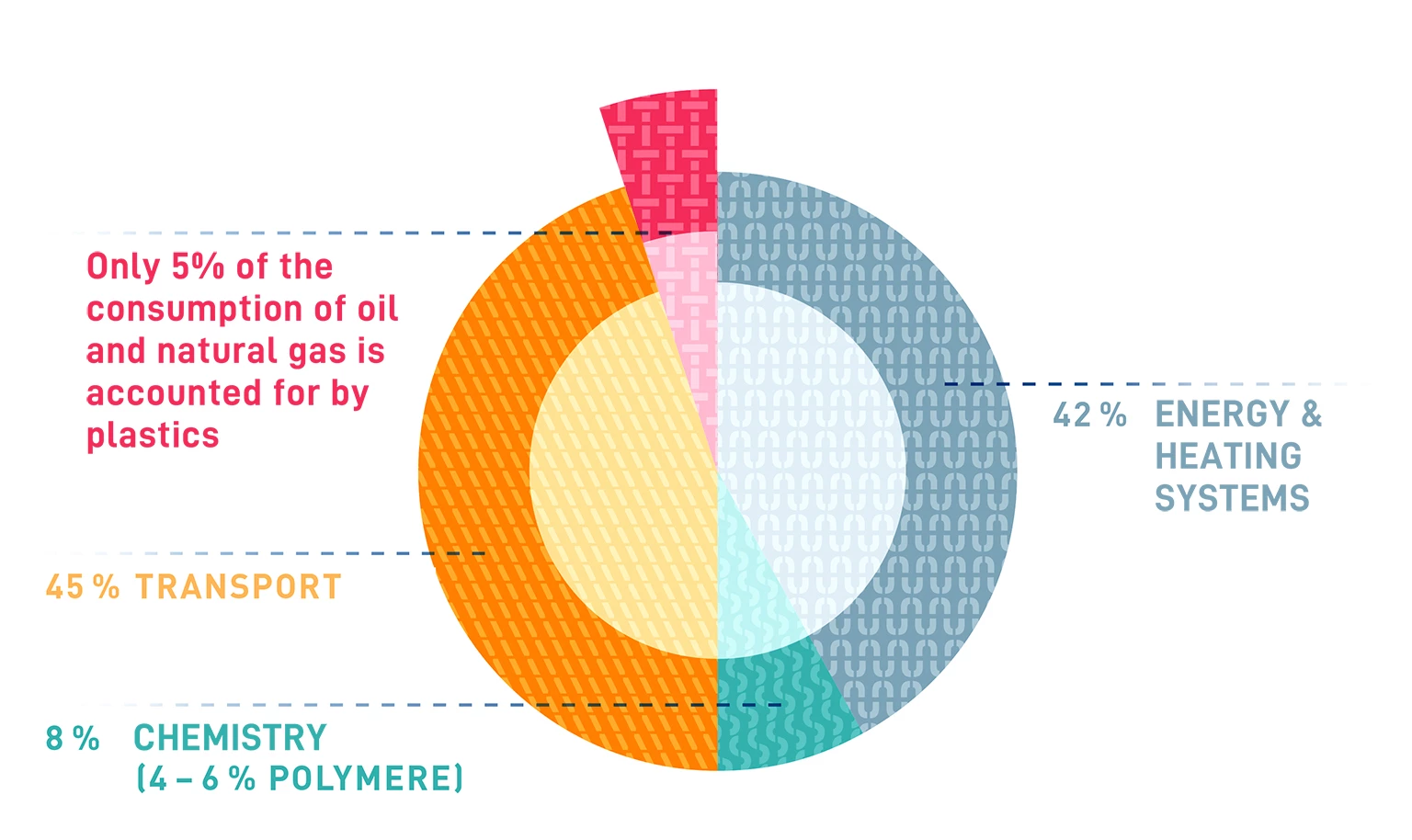

Responsible use of plastics
In 2018 plastics and the plastics industry shifted more and more into the focus of public awareness. Particularly plastic packages ever since then have been standing for environmental pollution and a waste of resources. But plastics are versatile and they are useful solution providers which help to tackle a number of the challenges facing our society today. However, not everything in everyday life is going well when it comes to plastic handling. A lot of products end up somewhere in the environment after use, disposed of much too thoughtlessly. This applies to packages and single-use plastic products which currently are particularly in the focus of European politics. And we often forget that these plastic applications provide important benefits.
Less food loss, portionability, multiple use, low material consumption, positive environmental balance (positive ecological footprint, since positive CO2 balance) and many more aspects. Plastic material has turned into a keyword for something which is inferior, artificial and harmful. But a clear view is absolutely essential. Plastics themselves are not the problem. On the contrary, the material is frequently part of solutions which are often vital.
Longer lasting thanks to plastic

"If consumers want a wide selection of fresh food, packages are essential."
Ulf Kelterborn, CEO Industrievereinigung Kunststoffverpackungen e.V.
Collecting, recycling, circular economy
Solutions against environmental littering are simple on one hand and complex on the other hand: Plastic materials are far too precious to be thrown away. The European Commission also realized this and as a result a plastic strategy was submitted in the beginning of 2018 with the intent to create first approaches for improved plastic processing in the circular economy. Initially, the European Parliament and the Council decided on prohibitions with respect to placement of so-called “Single use plastic articles” on the market: According to these initiatives it is no longer allowed to offer cutlery and stirrers, drinking straws, party cups or cotton swabs out of plastic material in the near future. But it is still unclear how a Europe-wide uniform implementation can be accomplished. The Federal Ministry of Education and Research has offered 35 million Euro for research on "Plastics in the Environment" through the "Research for Sustainable Development" program with the intent to develop and establish scientific procedures, methods, instruments and terms in the overall context of the "Plastics in the Environment" issue.
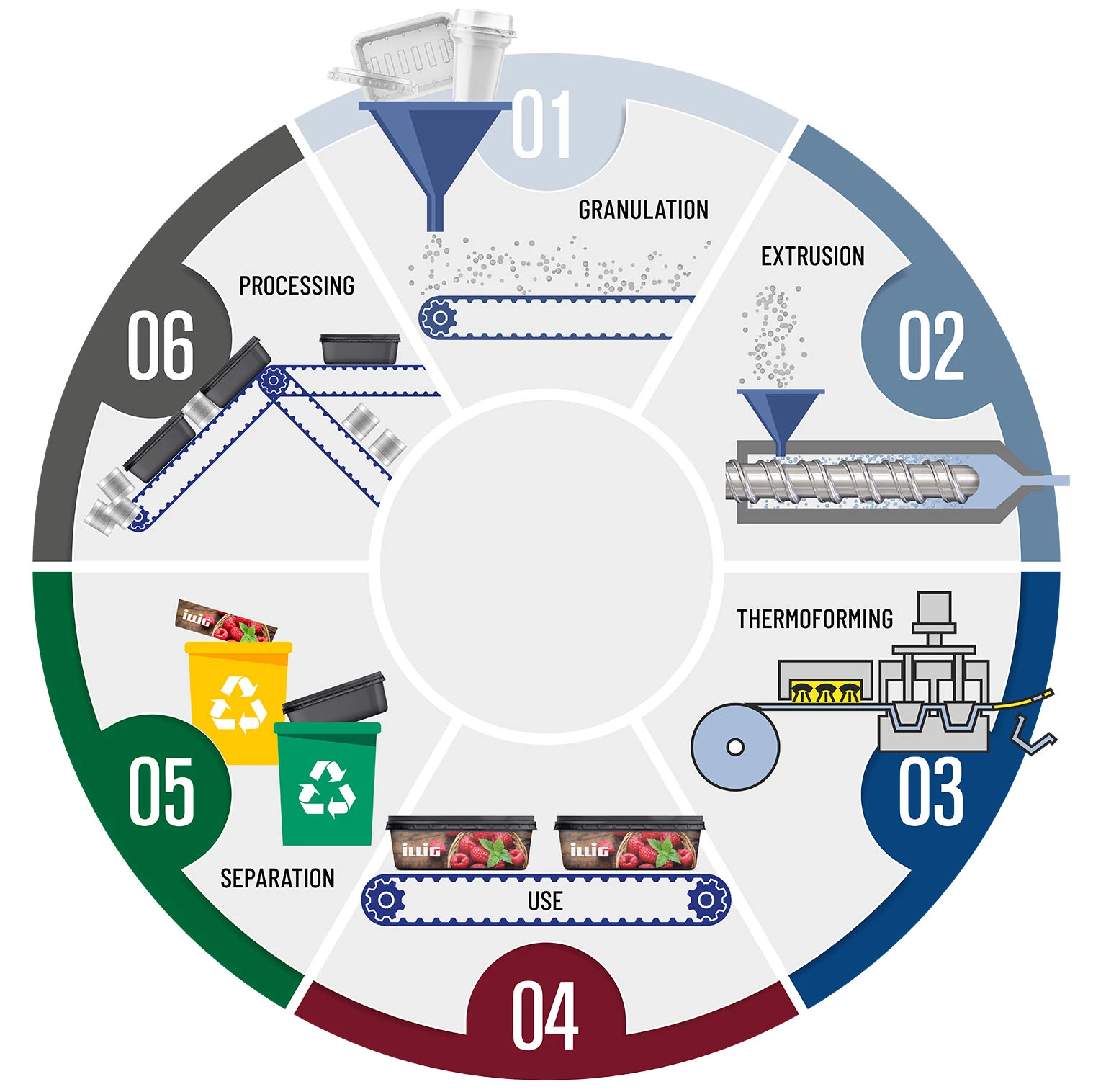
Circular Thinking bei ILLIG
- Recycling companies recycle the plastic raw material
- Different materials, such as sheet or roll material, can be manufactured out of plastic granulate
- ILLIG customers manufacture products out of the materials
- Consumers and companies utilize and subsequently dispose of the products
- Consumers separate the packages in a single-variety manner
- Waste disposal companies supply the plastic material to recycling companies
"I do not believe that plastics canbe quickly replaced. Plastic packages provide many benefits: They are very thin, lightweight and equipped with barrier properties."
Sven Sängerlaub,
Fraunhofer Institute for Process Engineering and Packaging IVV (Source: dpa)

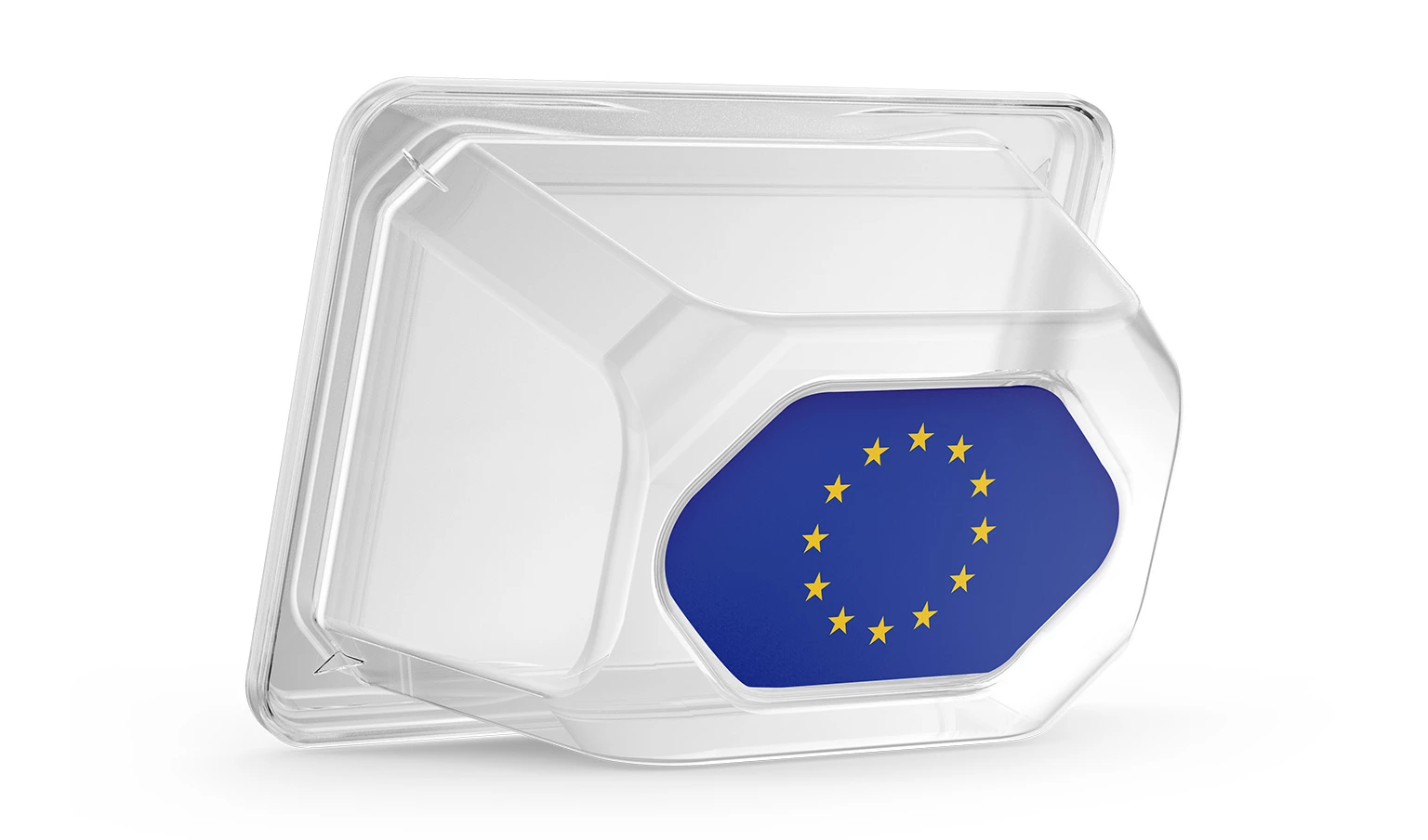
Source: PlasticsEurope
50 % of all packaged goods are packed in plastic materials. However, all plastic packages together only represent 17 % of the total weight of all packages

"In our opinion, biased problematization of materials and prohibition are not really helpful. Moreover, a change in attitude is required; a shift from the throwaway mentality to the development of a circular economy. The relevant proposals of the EU Commission are steps in the right direction and should be the goal of joint efforts on a national, European and global level. The plastics industry contributes its share and already today they are active in numerous initiatives and projects worldwide."
Dr. Rüdiger Baunemann (†), 2019 CEO PlasticsEurope Deutschland e. V.
Still creating high standards
Life as we know it here in the industrial countries, where we benefit from high standards in food safety and supply, medicine and hygiene, infrastructure and logistics, traffic and energy, will almost be impossible without the versatile use of plastics and plastic packages. If we look beyond the horizon, it becomes obvious that particularly in the developing countries and the emerging markets the packlog demand for plastic packages is high due to the high hygiene standard.
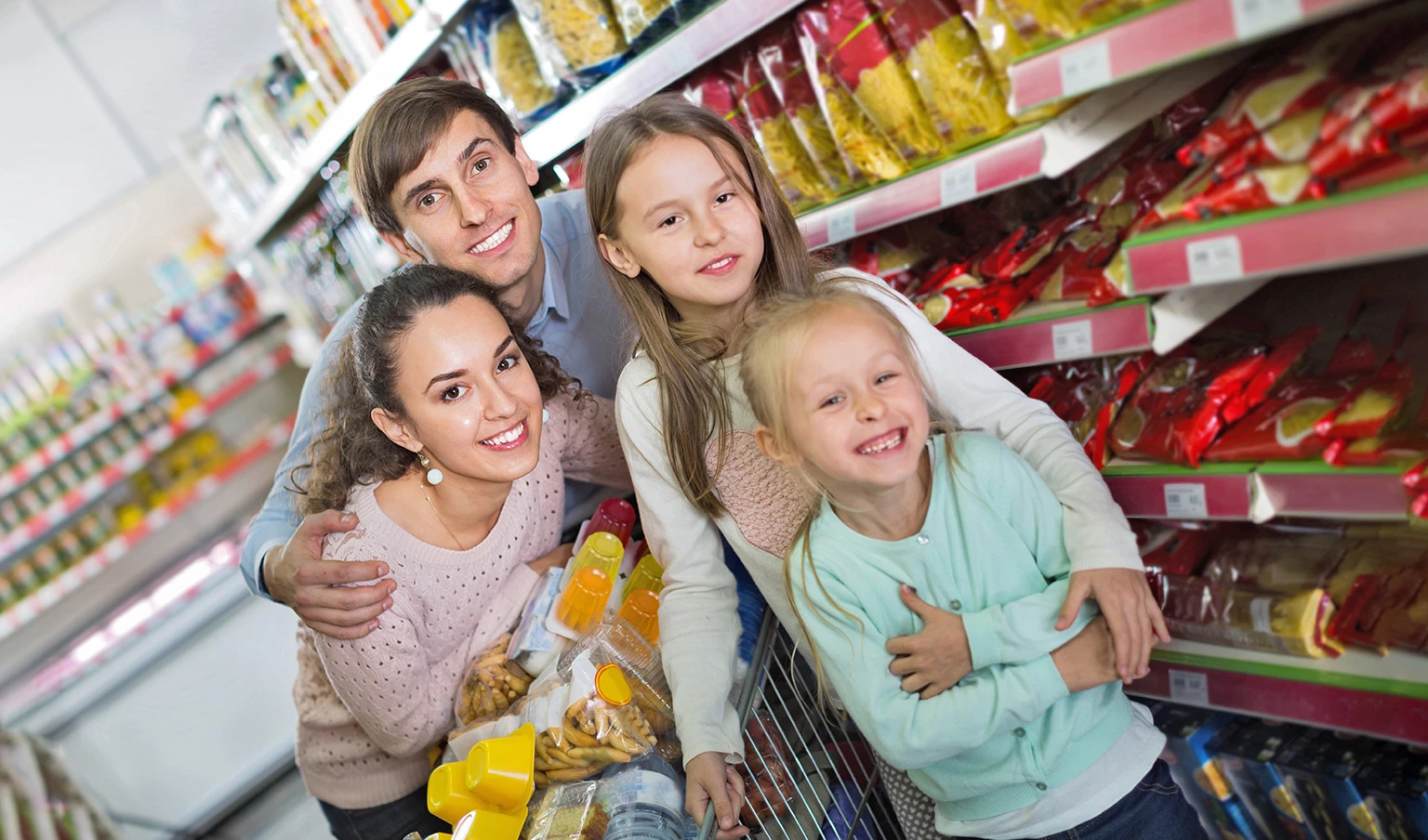
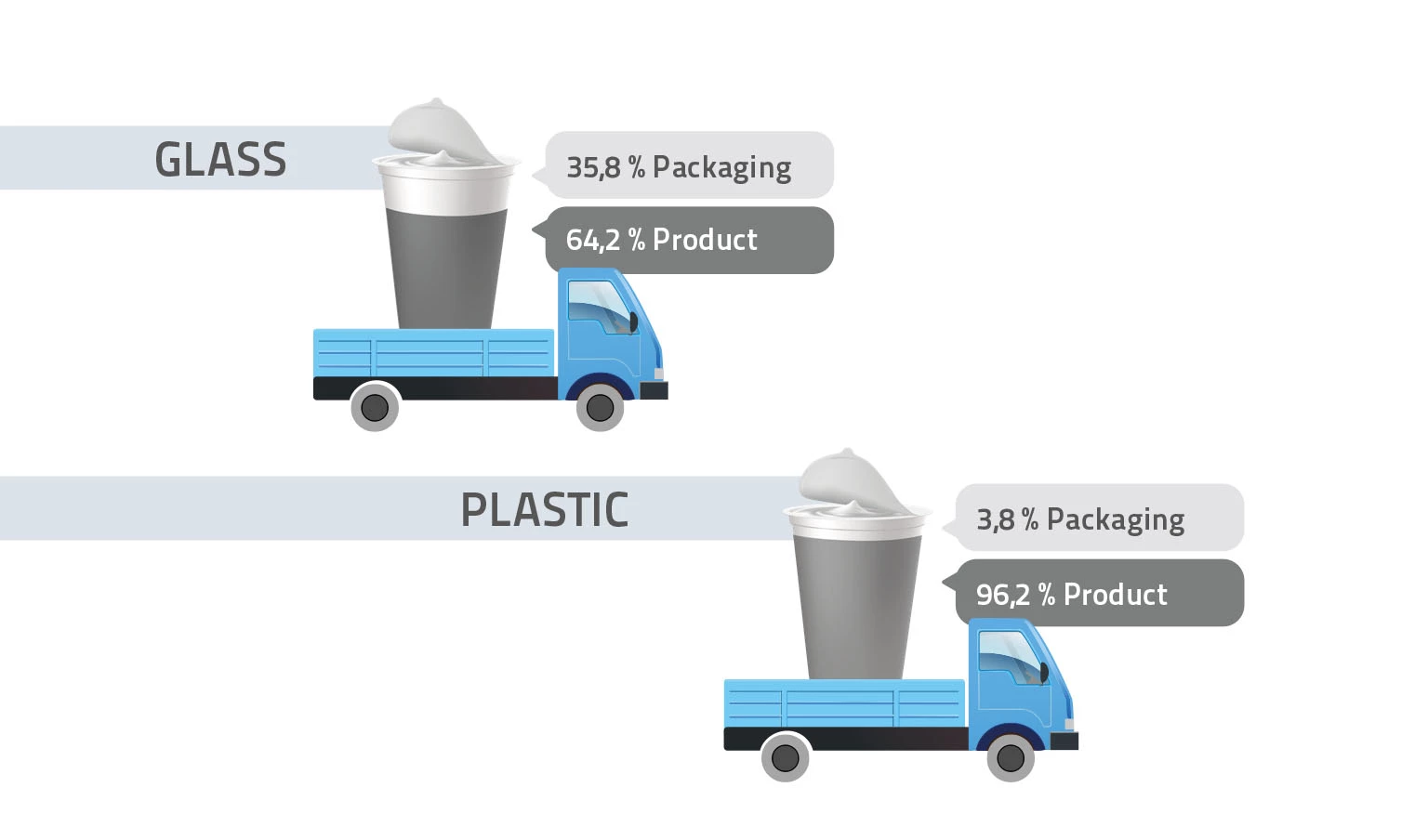
ILLIG, the technology leader, is continuously developing new solutions
Optimized packages allow raw material reduction and they can be suitable for later recycling. Thermoformed packages, in particular, can be manufactured in a thin-walled, resource-saving and economic way. Besides conventional plastic materials, the use of alternative and new materials is possible in thermoforming. Current ILLIG thermoforming and tool systems are suitable for processing bio-based and biologically degradable plastics, recyclates as well as material combinations. High-quality, safe and recyclable products can be manufactured out of these materials for the global market.
Information on microplastics
Stiftung Warentest calls plastic particles at a size of 0.1 microns to 5 millimeters microplastics and they thus follow the definition of the European Food Safety Authority (Efsa).
Microplastics escape into the environment from at least 51 different sources. The largest source of small particles is motorized traffic. But pedestrians alsogenerate microplastics – abrasion from their shoe soles.


